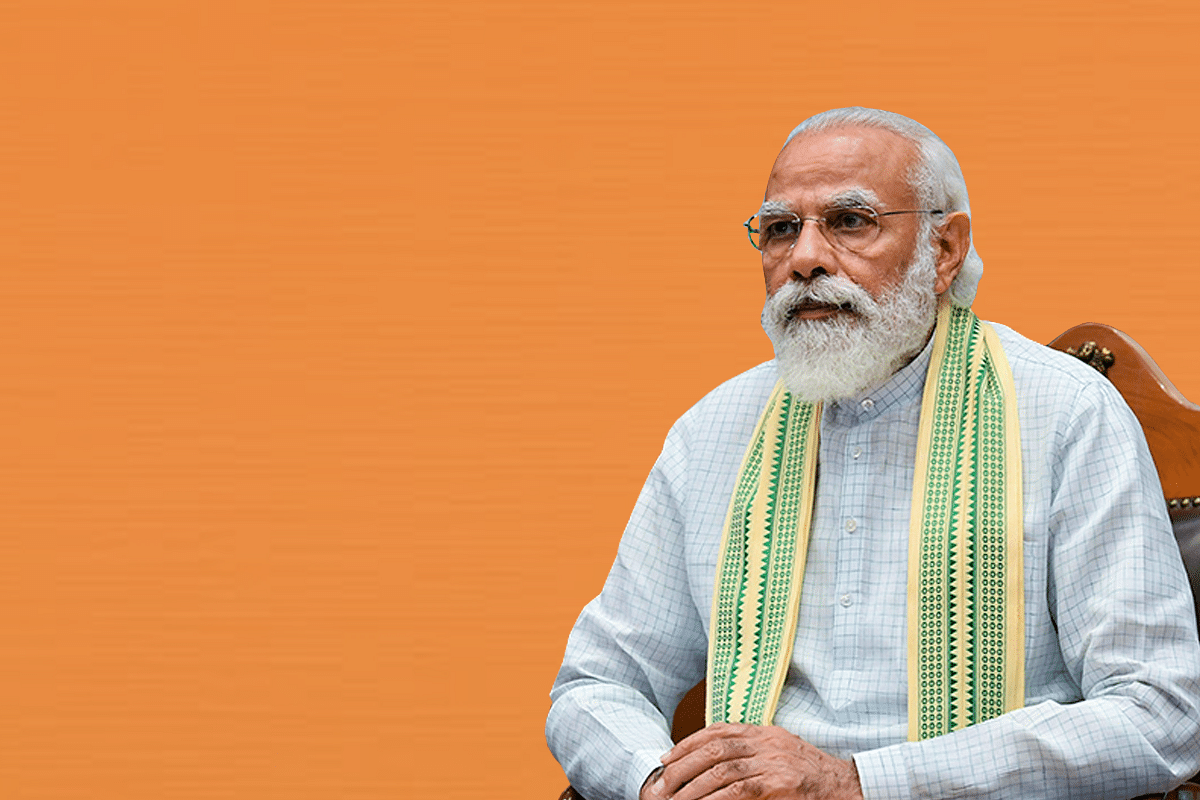Politics
Study By PM Modi's Economic Advisory Council Debunks Claims Of Government Discrimination Based On Religious Dominance
- "With respect to electricity, bank accounts, mobiles, and access to toilets, the gains were widespread across religions and social groups.
- "As a matter of fact, in some instances, minorities have gained more than the majority,” the paper stated.

Prime Minister Narendra Modi.
The Economic Advisory Council to the Prime Minister (EAC-PM) stated that the government didn't favor one community or discriminate based on the dominant religious communities in districts. No evidence supports these claims.
The working paper titled ‘A Secular Democracy in Practice: Objective Assessment of Amenities Programs in India’ by EAC-PM member Shamika Ravi stated that strong democratic institutions will lead to government support for the poorest in different sections of society regardless of caste, religion, or geography.
“Objectively quantifying the strengthening or weakening of democracy is a challenging task. Such a critical exercise cannot be based on a survey of perceptions of a small non-representative sample of elite opinion makers.
"If such an exercise is deemed necessary, it must be based on a representative sample of the underlying population,” she said, reported The Indian Express.
“For India, such a sample must represent more than 900 million electors who live in different geographies, belong to distinct social groups, speak in more than 100 languages, and are in various phases of socio-economic development.
"Though not a perfect substitute for such a survey, one way could be to look at the provision of basic amenities to the poorest 20 per cent of households across different social groups, religions, and geographies,” the working paper stated.
The paper mentioned that they found no evidence that government favoured one community or discriminated based on the dominant religion in a district.
“Based on a nationally representative sample of more than 1.2 million households across 2015–16 and 2019–21, we do not find any evidence that the government catered only to one community (Hindu majority) or discriminated across households based on districts where one religious community was dominant.
"With respect to electricity, bank accounts, mobiles, and access to toilets, the gains were widespread across religions and social groups. As a matter of fact, in some instances, minorities have gained more than the majority,” the paper stated.
Shamika Ravi analysed data from two rounds of the National Family Health Surveys conducted in 2015-16 and 2019-21. Her analysis focused on six amenities:
electricity,
on-premises water,
toilet facilities,
mobile phones,
bank accounts, and
LPG as cooking fuel.
“By quantifying changes in the provision of amenities across religions, social groups, and geographies based on faith, this paper challenges a popular perception-based narrative that democracy has been declining in India since 2014.
"In sharp contrast, our results indicate that the government is responsive to the needs of the marginalised section of society irrespective of religion, caste, or place of residence, which is an alternative and more robust indicator of strengthening democracy in India,” the paper said.
The paper also mentioned that the government should do more for the betterment of the poorest 20 per cent of households across religion and social groups, by providing amenities such as on-premises LPG and water.
Introducing ElectionsHQ + 50 Ground Reports Project
The 2024 elections might seem easy to guess, but there are some important questions that shouldn't be missed.
Do freebies still sway voters? Do people prioritise infrastructure when voting? How will Punjab vote?
The answers to these questions provide great insights into where we, as a country, are headed in the years to come.
Swarajya is starting a project with an aim to do 50 solid ground stories and a smart commentary service on WhatsApp, a one-of-a-kind. We'd love your support during this election season.
Click below to contribute.
Latest